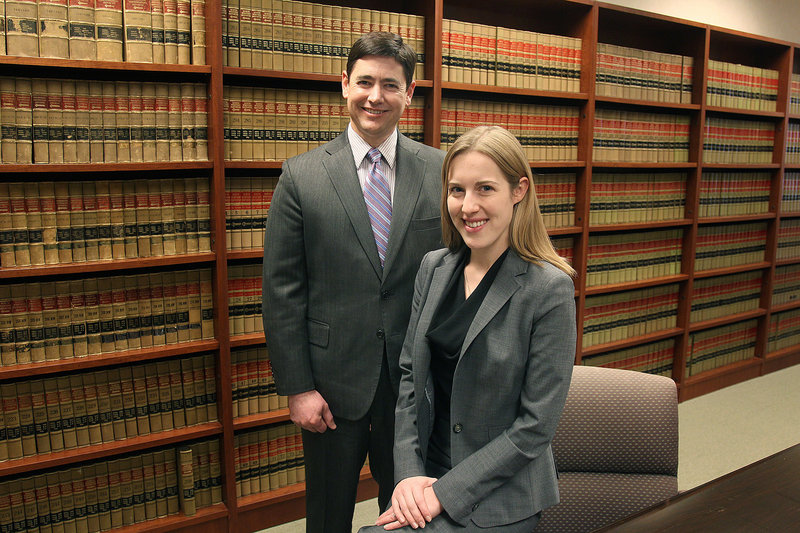On a recent January morning, attorney Randi Winter sat before U.S. Magistrate Judge Jeanne Graham in St. Paul, Minn., ready to argue for the dismissal of a lawsuit on behalf of client GMAC Mortgage.
Just three years out of law school, 27-year-old Winter was getting face time in front of a judge — a relatively rare opportunity for young lawyers that also presents a chronic challenge for law firms. With the high cost of litigation, most cases settle before reaching the courts. But when they do, clients want experienced litigators making their arguments.
Winter is part of a program developed by her firm — Felhaber, Larson, Fenlon and Vogt — that’s designed to give younger lawyers early courtroom exposure to improve their attorney skills.
“I’ve gotten more court opportunities than I ever expected,” Winter said in an interview. “This helps develop your professionalism both with your clients and with opposing counsel.”
The Felhaber program sends young lawyers to a trial boot camp in Colorado for advanced training, provides access to federal and state judges to talk about courtroom protocol, conducts mock arguments in real courtrooms before real judges wearing their black robes, and places attorneys on assignment with the Minneapolis city attorney’s office, where they can try actual cases.
Other law firms also attempt to polish their young lawyers’ courtroom skills with real-world experience.
“There’s only so much that law schools can do,” said Bryn Vaaler, the professional services partner for the Minneapolis firm Dorsey & Whitney. “There are a lot of things we’re better equipped to do than law schools. Law school is the place to get the theory of law.”
Dorsey puts its associates to work on pro bono, or non-fee, cases and offers internal training through its “Dorsey U” program with senior members. Fredrikson & Byron, another Minneapolis firm, offers similar training and encourages young attorneys to participate in the federal “Pro Se Project” that helps individuals with limited financial means.
The Nilan Johnson Lewis law firm in Minneapolis participates with Felhaber in mock court exercises. Fish & Richardson, like Felhaber and Dorsey, sends associates to work in the city attorney’s office.
Donald Lewis, dean of the Hamline University School of Law, acknowledges that law schools are trying to expand their hands-on training to make students more marketable after graduation.
“We have the students for three years,” Lewis said. “A large majority of time, especially in the first year, is spent on content and theory. It’s not until the second and third year that we can give them practical experience.”
Lewis said Hamline has added a course on the business of lawyering to teach students how to run a law practice; hired a nationally known director for its clinics in which students interact with real clients with real problems; and is expanding its “externship” program that puts law students in work settings with practicing lawyers.
Hennepin County (Minn.) District Judge Jay Quam is a big fan of programs like the one at Felhaber, which mix mock court exercises with real-world exposure.
“Having training opportunities isn’t the same as actual trial experience, but it’s better than nothing,” Quam said. “What I see in these young attorneys is unrealized potential. They are very smart with a ton of talent, but they need repetition. You don’t become good without practicing.”
In many firms, associates spend their early years in the law library doing research for legal briefs or in front of tons of corporate documents doing tedious discovery for civil lawsuits, all on behalf of more senior attorneys. Courtroom appearances are rare, and the opportunity to argue a motion or cross-examine a witness is even more unlikely.
Indeed, trials are less common as the time and cost of pursuing litigation makes settling a case an economic alternative to putting a case in the unpredictable hands of a jury.
As a result, it takes longer for new attorneys to get courtroom experience.
Felhaber, with about 70 lawyers and 25 trial attorneys, started its courtroom training program about five years ago and partnered with the city attorney’s office shortly thereafter.U.S. Sen. Amy Klobuchar, D-Minn., is an alumna of the city attorney program from her days as a young Dorsey associate. She went on to become Hennepin County attorney before running for the Senate.
“It’s a really good opportunity for our office,” said City Attorney Susan Segal. “It gives us extra bodies to handle trials, and it’s a great way for lawyers to see what we do. Criminal law happens so quickly. You have to stand on your feet sometimes with only a police report to go on.”
In the GMAC case, Randi Winter ended up not making her argument for dismissal. The plaintiff, who was representing himself, did not show up for the hearing. The judge took the motion to dismiss under advisement for a later ruling.
Still, it was a learning experience, said Winter’s boss, Donald Heeman, who was seated next to her in the courtroom. With her thick, three-ring binder of legal documents, Winter was ready to make her case.
“Randi’s preparation efforts will only improve her skills,” Heeman said.
Send questions/comments to the editors.



Comments are no longer available on this story